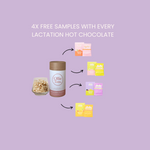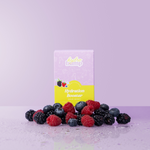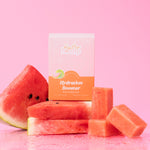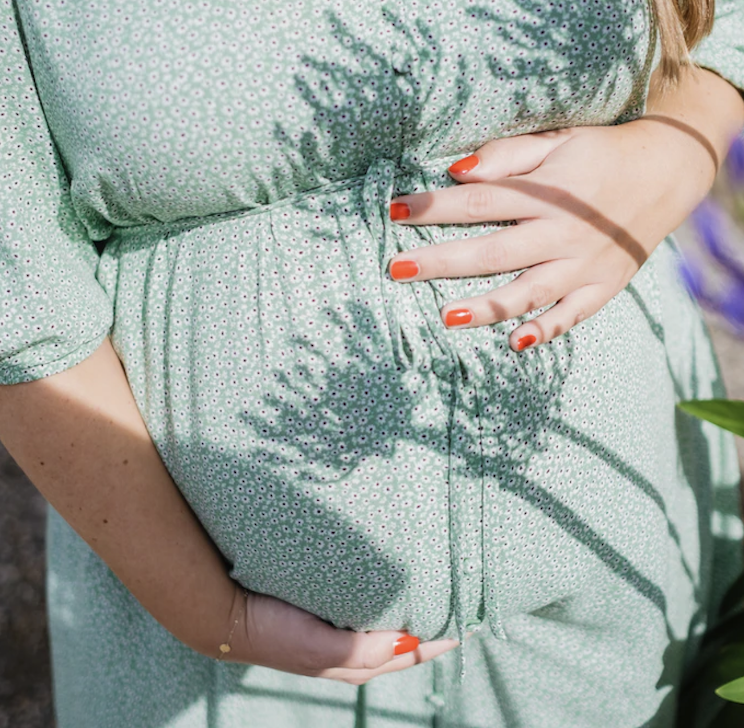Pregnancy and the postpartum period are times when your body undergoes incredible change. Hydration plays a crucial role in supporting these changes and ensuring both you and your baby stay healthy. HydroBump is dedicated to supporting mothers through science-based hydration insights and solutions that focus on natural balance rather than quick fixes.
Understanding what dehydrates you in pregnancy helps you make better choices about what you eat, drink, and do daily. This awareness can prevent fatigue, swelling, and other common symptoms of dehydration that often affect expectant and new mothers.
Why Hydration Is So Important During Pregnancy
Hydration is not just about drinking water it’s about maintaining the right balance of fluids and electrolytes in your body. During pregnancy, your blood volume increases by about 45% to support your growing baby. Water is needed for everything from producing amniotic fluid to facilitating nutrient transport and digestion.
When dehydration occurs, your body works harder to perform basic functions, and symptoms like fatigue, headaches, or constipation may follow. Severe dehydration in pregnancy can even contribute to complications such as Braxton Hicks contractions, low amniotic fluid, or urinary tract infections (UTIs).
According to HydroBump’s Hydration in Pregnancy guide, consistent hydration supports smoother digestion, improved nutrient absorption, and better energy throughout the day all of which benefit both mother and baby.
What Dehydrates You in Pregnancy: The Common Culprits
Let’s look closely at the main foods, drinks, and habits that can lead to dehydration during pregnancy and the postpartum period.
1. Caffeinated Beverages
Caffeine is a known diuretic, meaning it increases urine output, which can lead to fluid loss. During pregnancy, your body is already working overtime to maintain fluid balance, so caffeine can have a stronger dehydrating effect.
Common sources include:
- Coffee and espresso-based drinks
- Green and black tea
- Cola and some soft drinks
- Energy drinks
Excess caffeine can also interfere with iron absorption an important nutrient during pregnancy. Most healthcare professionals recommend limiting caffeine to under 200 mg per day, roughly equivalent to one small cup of coffee.
Healthier alternative: Try decaffeinated coffee, caffeine-free herbal teas such as rooibos or ginger, or naturally flavoured water with lemon or cucumber.
2. Sugary and Carbonated Drinks
Soft drinks, sports beverages, and fruit juices often contain high amounts of added sugar. These drinks can draw water out of your cells as your body works to process the sugar, leading to dehydration.
In addition, excessive sugar intake may increase the risk of gestational diabetes and cause spikes in energy followed by sudden crashes.
Better options:
- Dilute natural fruit juice with water
- Choose sugar-free electrolyte drinks from HydroBump’s collection
- Drink plain or sparkling water with a squeeze of citrus for flavour
3. Salty and Processed Foods
Too much sodium in your diet can cause water retention and cellular dehydration over time. This imbalance often leads to swelling (particularly in the hands, ankles, and feet), fatigue, and even elevated blood pressure.
Foods to watch out for:
- Packaged snacks (crisps, salted nuts, crackers)
- Fast foods and fried meals
- Processed meats such as bacon, sausages, or ham
- Canned soups and sauces
Instead, opt for whole, unprocessed foods rich in potassium, magnesium, and natural electrolytes such as bananas, avocados, and spinach. These help regulate hydration and counteract the effects of sodium.
4. Certain Herbal Teas
While herbal teas are popular during pregnancy, some can have diuretic properties that cause increased urination and fluid loss. Herbal ingredients like dandelion, hibiscus, parsley, or juniper should be approached with caution.
Always consult your healthcare provider or midwife before introducing new herbal teas, especially during pregnancy and breastfeeding. Choose pregnancy-safe options like ginger, peppermint, or raspberry leaf tea (in moderation and under supervision).
5. Alcohol (Strictly Avoid)
It goes without saying alcohol should be avoided entirely during pregnancy. Not only does alcohol severely dehydrate the body, but it also increases the risk of fetal alcohol spectrum disorders (FASDs).
Even small amounts can interfere with nutrient absorption, reduce milk production postpartum, and slow down recovery. Complete avoidance is the best approach for your health and your baby’s wellbeing.
6. Intense Exercise Without Proper Rehydration
Regular exercise is highly beneficial during pregnancy, supporting circulation, strength, and mood. However, overexertion or inadequate hydration during exercise can lead to fluid loss through sweat.
When exercising while pregnant:
- Sip water before, during, and after workouts
- Avoid exercising in extreme heat
- Include electrolyte-replenishing drinks after longer sessions
Balanced hydration options like those found at HydroBump’s online collection can help replenish fluids naturally and safely.
7. Skipping Meals
Skipping meals means skipping water too. Many fruits and vegetables are rich in water, such as cucumber, tomatoes, oranges, and watermelon. When meals are missed, the hydration benefit from these foods is lost.
Eating regular, balanced meals ensures a steady intake of both nutrients and fluids throughout the day.
8. Environmental Factors
Your surroundings can affect hydration more than you might think. Air conditioning and heating systems can dry out the air, while warm weather or humid climates cause increased sweating.
Tips to adapt:
- Carry a reusable water bottle when out
- Increase fluid intake during hot or dry weather
- Use a humidifier indoors to reduce moisture loss
Postpartum Hydration: Why It Matters Even More
After birth, your body continues to need extra fluids, especially if you’re breastfeeding. Breast milk is made up of about 90% water, so hydration is vital for maintaining milk supply.
Dehydration in the postpartum period may cause:
- Low milk production
- Dizziness or headaches
- Fatigue and brain fog
- Dry skin and lips
Postpartum recovery is smoother when fluid intake is consistent. Sip water frequently, and include foods with high water content like soups, fruits, and leafy greens.
Hydration Tips for Pregnancy & Postpartum
1. Start and End Your Day with Water
Drink a glass of water as soon as you wake up and another before bed. This helps kickstart digestion in the morning and prevents overnight dehydration.
2. Monitor Urine Colour
A simple but effective way to track hydration. Pale yellow urine suggests good hydration, while darker shades indicate you need more fluids.
3. Eat Water-Rich Foods
Hydration isn’t limited to beverages. Include foods like cucumber, lettuce, strawberries, and oranges in your meals daily.
4. Balance Electrolytes
Electrolytes — sodium, potassium, and magnesium — regulate fluid balance. You can find balanced hydration formulas suitable for pregnancy through HydroBump’s range.
5. Use Reminders
Set alarms or use a hydration tracking app to remind you to drink water throughout the day, especially when busy or fatigued.
6. Keep Water Accessible
Keep a bottle at your bedside, in your car, and in your bag. Visibility encourages consistency.
7. Listen to Your Body
If you experience thirst, dry lips, fatigue, or headaches, these are early signs of dehydration. Increase fluid intake gradually.
The Role of Electrolytes in Pregnancy Hydration
Plain water is essential, but in some cases, it may not be enough — especially during periods of heavy sweating, morning sickness, or breastfeeding. Electrolytes help your body absorb and retain fluids more effectively.
However, not all electrolyte products are safe for pregnancy. Look for options without caffeine, excess sugar, or artificial additives. HydroBump focuses on gentle, pregnancy-safe hydration support tailored for mothers at all stages. Learn more about their approach.
When to Seek Medical Advice
While mild dehydration can often be corrected by increasing fluids, severe dehydration requires medical attention. Seek professional help if you experience:
- Very dark urine or no urination for hours
- Rapid heartbeat
- Dizziness or confusion
- Persistent vomiting
- Signs of preterm contractions
Pregnant women should never ignore dehydration symptoms, as fluid imbalance can impact both maternal and fetal health.
Final Thoughts
Hydration during pregnancy and postpartum is more than a daily habit it’s an essential part of supporting your body’s changing needs. By avoiding foods, drinks, and habits that dehydrate you, and focusing on water-rich, balanced nutrition, you can help your body thrive through each stage of motherhood.












